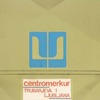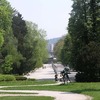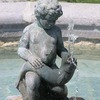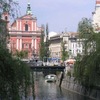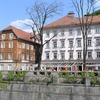Street naming stirs up old memories
Memories of Slovenia's troubled past were re-awakened last month after the city's council decided to re-name a street 'Titova Cesta', after Tito the president of the old Yugoslav communist state. While most of the council members voted in favour of the proposal, the right-wing councillors took a stand against the re-naming arguing that the move would simply open up old memories of the country's troubled past. After Tito's death there was a rush to rename many places in Ljubljana after the president but after the fall of Communism these gradually reverted back to their pre-Word War II names, including the area called Podgorica, which was called the Socialist inspiring 'Titograd'.
The move to re-name the street has not only split the city's politicians but has also whipped up pain about the fate of thousands of Balkan citizens who were murdered after the war by Tito's Partisans. Tito led the Yugoslav resistance movement during World War ll and after the war became first Prime Minister and then President until his death in 1980. It was the period when he led the Yugoslav Partisans that is causing much soul-searching, since the government has recently begun registering the sites of mass graves of people murdered by Tito's 'henchmen' who had collaborated with the Nazis during the war. In no other country had there been such widespread and systematic murder by the home resistance of its fellow countrymen and most of the killings were carried out after the war had ended.
The cult of ex-Communist leaders is inevitably going to be controversial, and while 59 per cent of the city's residents backed the street re-naming in a recent poll, in Croatia, which was also part of the former Yugoslavia, more than 1,000 people demonstrated against an attempt to rename a square after the former president.
What's clear is that the re-naming re-opens old wounds that have yet to heal.
 Airtrail Slovenia
Airtrail Slovenia
